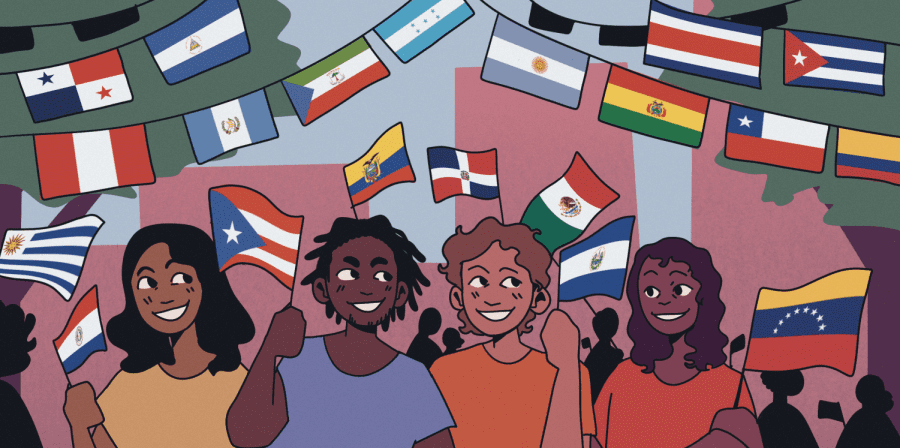Editorial | There’s more to the word ‘Hispanic’
September 14, 2022
Merriam-Webster defines “Hispanic” as “relating to, or being a person of Latin American descent and especially of Cuban, Mexican or Puerto Rican origin living in the U.S.” What the dictionary doesn’t convey, though, is the deep-rooted internal conflict the term “Hispanic” invokes within Latin American populations that reside in the U.S.
Before 1980, anyone of Latin American origin was considered either Spanish-speaking, of Spanish origin or white on the census. “Hispanic” was first used on census forms in 1980 after years of lobbying by Latin American activist groups to use a more-inclusive term in order to group Latin American populations under one label for political unity.
Though it took a few years to catch on, “Hispanic” was soon popularized by the census and the media. However, many still choose not to use the term. A Pew Research Center study found that 47% of Latin Americans or people of Latin American descent while living in the U.S. choose to describe themselves by their country of origin, 39% choose to use Hispanic/Latino and 14% describe themselves as American.
So why do so many individuals choose not to be labeled as Hispanic? The answer lies in the roots of Spanish colonialism in Latin America.
“Hispanic” only includes Spanish-speaking countries in Latin America and Spain, so the label excludes non-Spanish-speaking countries in Latin America such as Brazil. The term also excludes communities within these countries that speak indigenous languages.
Get The Daily Illini in your inbox!
Many populations choose to not be connected to or labeled by a term that also refers to Spanish culture and tradition due to colonial roots, despite speaking Spanish, which is a result of colonization. Furthermore, assuming that every country in Latin America speaks Spanish erases the long-standing history and cultures of Latin America before its colonization.
Labeling all Spanish speakers under “Hispanic” ignores the separate cultural identities that unify these countries and erases the differences that make every culture unique.
This brings into question why umbrella-like labels are thought of as necessary to categorize a wide range of people that don’t even want to be labeled as such in the first place. Latin American populations are incredibly diverse and all have complex roots that are entwined in each other, so it’s understandable that not everyone would want to label their experiences and identities under “Hispanic.”
However, we are not here to tell you what terms you should and should not use — this is for informative purposes. If you would like to learn more about Latin American cultural identities from qualified experts, visit La Casa Cultural Latina or refer to the Department of Latina/Latino Studies for more information.
Celebrate these cultural differences. Support Latin American-owned businesses, check out local dance group performances and attend other cultural events. We all become stronger as a community through acceptance and understanding of each other. Our diversity is large and vast. If you don’t recognize the nuances of your community members, do you really know the community?







